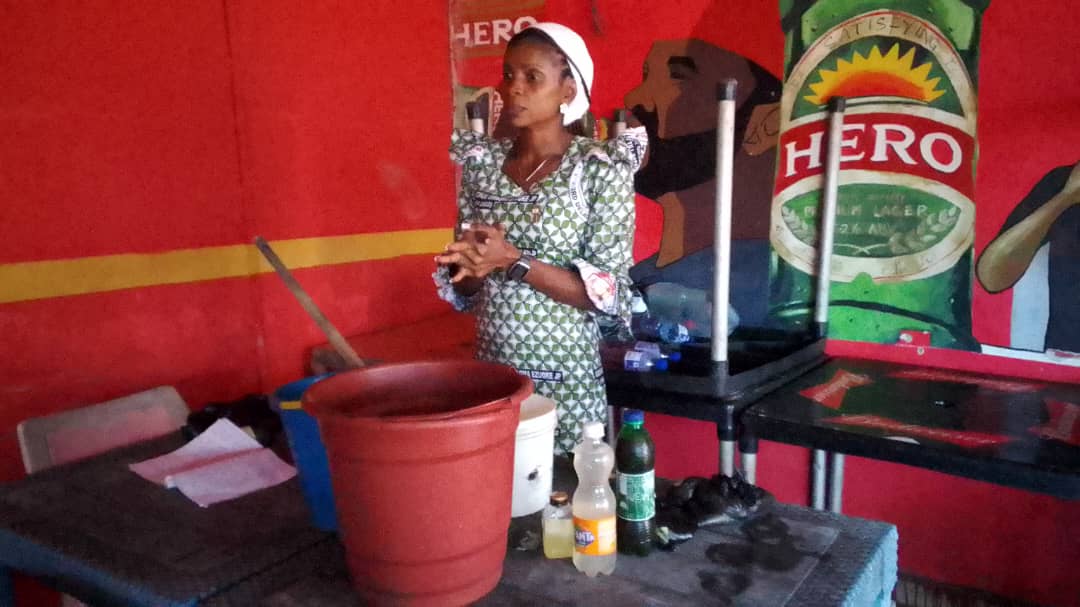The Michael Okpara University of Agriculture, Umudike (MOUAU) Alumni Association, Umuahia Chapter, has held another practical lecture on small-scale household chemical production, aimed at equipping individuals with affordable skills for home use and income generation.
The lecture, held at the Kolping Society, Umuahia, Abia State featured Mrs. Benedicta Ihuoma Igboh as the resource person. She delivered a detailed, hands-on presentation on the production of liquid soap and bleach using locally available materials.
Mrs. Igboh noted that liquid soap is an essential household cleaning product and that learning to make it can significantly reduce costs while creating business opportunities. She outlined a step-by-step process for producing 10 liters of liquid soap, using ingredients such as Nitrosol, SLS, caustic soda, soda ash, texapon, STPP, sulphonic acid, foam booster, fragrance, and coloring.
She stressed the need for clean water, protective gear, and proper mixing techniques to ensure product quality. Participants were also trained on low-cost packaging and marketing strategies, including selling within their immediate network, offering free samples, leveraging social media platforms like WhatsApp and Facebook, and reinvesting profits to grow the business.
In the second session, Mrs. Igboh demonstrated how to make liquid bleach (sodium hypochlorite solution) for domestic and small-scale commercial use. Using chlorine powder, caustic soda, soda ash, and water, she guided attendees through safe preparation, mixing, and storage. She cautioned against improper handling, stressing the importance of wearing gloves and face masks and never mixing bleach with other chemicals to avoid toxic fumes.
She highlighted that both liquid soap and bleach can be produced at minimal cost, making them valuable for household use and as profitable small-scale ventures.
Earlier in his opening remark, Chairman of the MOUAU Alumni Association, Umuahia Chapter, Dr. Onyekachi Uwalaka, underscored the importance of practical skills acquisition in tackling Nigeria’s economic and social challenges.
He described the training as “a practical demonstration of our mission to translate knowledge into action, and action into sustainable development,” adding that Nigeria is “at a crossroads where unemployment, high living costs, and economic uncertainty demand creative and homegrown solutions.”
According to Dr. Uwalaka, equipping citizens with affordable production skills not only meets immediate household needs but also “plants seeds for small-scale entrepreneurship and self-reliance.”
“Lectures like this are not just about learning a skill — they are about strengthening the economic backbone of our communities, reducing dependency, and fostering a culture of innovation. The future we dream of will not be built by government alone, but by the collective effort of informed and empowered citizens,” he said.
He commended Mrs. Igboh for her dedication to knowledge sharing and urged participants to put their newly acquired skills into practice to improve livelihoods and contribute to local economic growth.

























